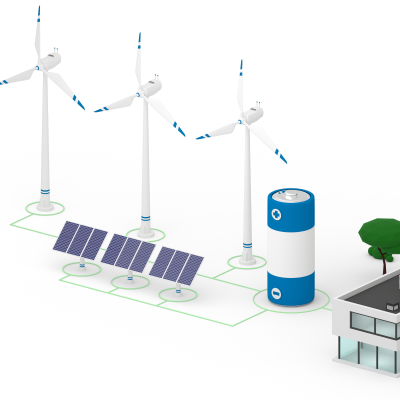LLNL researchers have designed and produced, both conductive and non-conductive porous electrode components manufactured for improved metal deposition, discharging, and fluid dynamics in hybrid flow batteries. This is achieved through Direct Ink Writing (DIW) additive manufacturing. The engineered 3D electrodes enable uniform current distribution and even metal deposition during charging…
Keywords
- Show all (114)
- Instrumentation (38)
- Diagnostics (13)
- Electric Grid (8)
- Carbon Utilization (6)
- Compact Space Telescopes (5)
- Laser Materials Processing (5)
- Materials for Energy Products (4)
- Brain Computer Interface (BCI) (3)
- Optical Damage Mitigation (3)
- Precision Optical Finishing (3)
- RF Photonics (3)
- 3D Printing (2)
- Direct Air Capture (2)
- Power Electronics (2)
- Synthesis and Processing (2)
- Ultrashort Pulse Lasers (2)
- Vaccines (2)
- (-) Therapeutics (5)
- (-) Diode Lasers (4)
- (-) Additive Manufacturing (2)

This invention proposes to engineer the current density along the length of a laser diode to overcome the penalty associated with non-uniformity resulting from asymmetry in the gain, photon or carrier density despite having uniform contact. Optimizing the current density profile enables diode lasers to operate with greater power conversion efficiency or operate with equivalent power conversion…
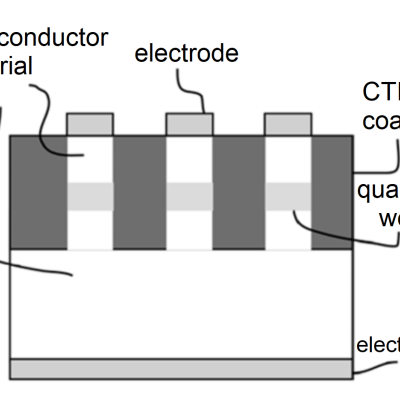
This invention proposes to engineer the temperature dependence of the emission wavelength of LEDs and laser diodes. The approach is to use a strain-inducing coating to counteract the intrinsic temperature coefficient of the emission wavelength of the LED or laser diode device thereby rendering it athermal. This invention avoids additional complexity, size, weight and power dissipation of…
This invention proposes a method to overcome the key limitation of electrically pumped lasers based on AlN, AlGaN, or AlInGaN, namely the lack of suitable shallow donor and acceptor dopants. As the band gap of these materials increases (and the emission wavelength decreases), both electrons and holes require greater thermal energies in order to ionize.

Laser diode lensing effect can be substantially reduced by creating a pattern interface such that the substrate is only attached at the diode mesa. This is achieved by either creating a pattern solder joint and/or pattern substrate.
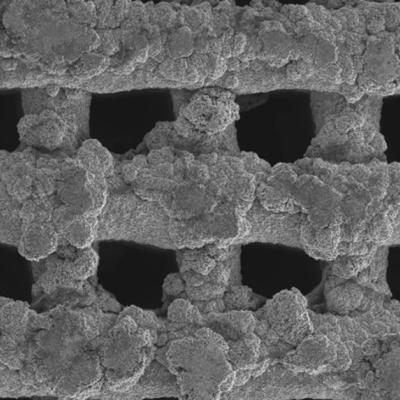
Improving the active material of the Zn anode is critical to improving the practicality of Zn-MnO2 battery technology. LLNL researchers have developed a new category of 3D structured Zn anode using a direct-ink writing (DIW) printing process to create innovative hierarchical architectures. The DIW ink, which is a gel-based mixture composed of zinc metal powder and organic binders, is extruded…
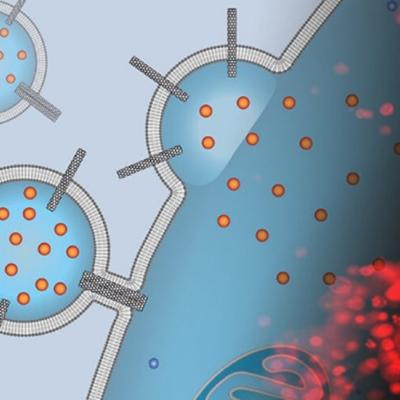
To address shortcomings of current liposome drug delivery systems, the patented innovation uses drug-loaded liposomes containing carbon nanotube porins (CNTPs) inserted into the liposomal membranes for the delivery of the encapsulated drugs. Short CNTPs (10 nm in length) with narrow diameter (0.8 nm) has been demonstrated to facilitate efficient fusion of lipid bilayers resulting in the…
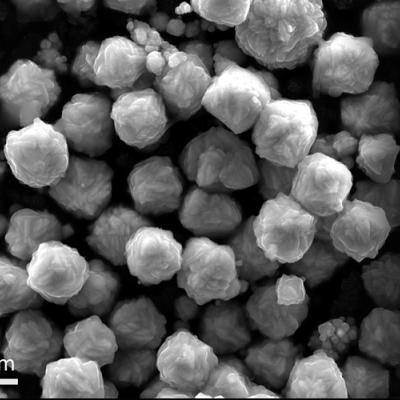
A new approach of developing synthetic antibacterial mineral assemblages can be used as an alternative treatment when traditional antibiotics fail in clinical and agricultural settings. Mineral mixtures can be synthesized with tunable metal release and reactive oxygen species generation that are capable of killing human pathogens and promoting wound healing. One of the key components in the…
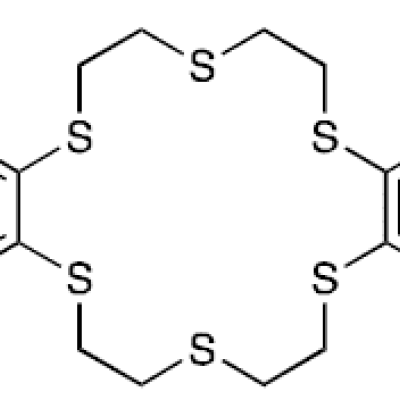
The method described in a pending patent application uses a novel thiacrown (dibenzohexathia-18-crown-6) for efficient extraction of 197m,gHg and 197gHg from irradiated Pt target foils. The separation of 197m,gHg and 197gHg from Pt foils using this novel thiacrown was found to be highly specific. No detectable amount of the Pt foil was seen in the…
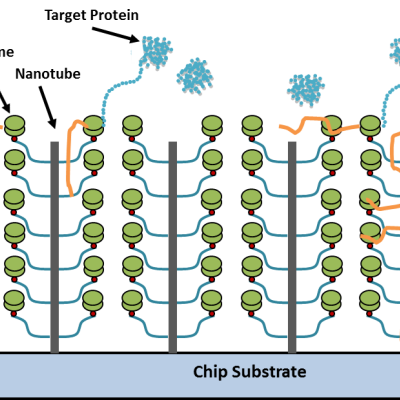
Combining the principles of nanotechnology, cell-free protein synthesis and microfluidics, LLNL researchers have developed a reusable, portable programmable system that can create purified, concentrated protein product in vitro in a microfluidic device containing nucleic acids.
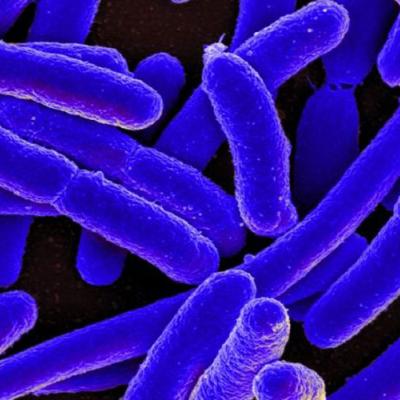
LLNL scientists developed novel hydrogels, which are biodegradable soft materials synthesized by a water-soluble polymer. Incorporating silver imparts antimicrobial activity to the material at low concentration compared to currently used silver nanoparticles. Our hydrogels are composed of silver ions instead of silver nanoparticles, which eliminates the toxicity concerns of modern silver…

